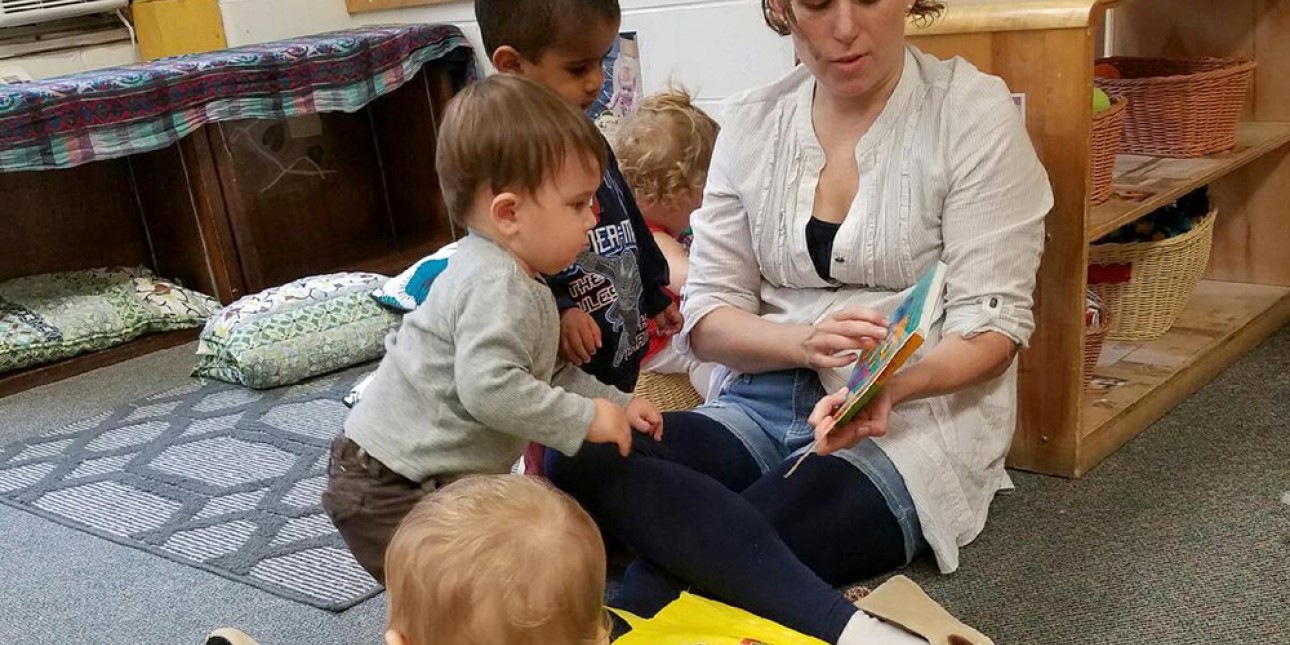Message from Kharma: Learning language

written by Kharma Hicks, Infant/Toddler Coordinator
Communication, Language and Literacy Learning
Aiding infants and toddlers in their language acquisition begins with trusting relationships and is formed through sensory-motor experiences and teachers providing a vocabulary-rich environment. Keep in mind that language is developed and not taught. Language skills grow from significant interactions with intentional, attentive, and responsive adults.
The bonding between young children and adults encourages communication and language development. One way to build these trusting relationships is through reading aloud to children. In our classrooms, teachers not only read in large groups, but there are lots of opportunities for reading individually with children.
Whether the teacher is bottle feeding, changing a diaper, toilet training, or any other caregiving routine, these times are not rushed or done in a mechanical way. They are seen as key times to form trusting relationships where language and vocabulary is developing and building.
Non-verbal communication is just as crucial. Infants make facial expressions, turn their head towards or away from something, and cry.
Active learning and language learning are interconnected. When children are given objects that engage all of their senses, it can be a new and significant experience. As teachers play with children, they extend language through conversation. When infant and toddlers explore the environment with their whole bodies and all senses, language learning becomes much more meaningful.
The more words young children are exposed to within their daily experiences, the broader their vocabulary will be. Our goal is to strengthen communication and literacy through reading books again and again to the infants, and allowing the toddlers to act out their favorite books.
Learning to communicate through facial expressions, sounds, movements, and words lays a foundation for a child’s interest in and understanding of books and reading as they get older.